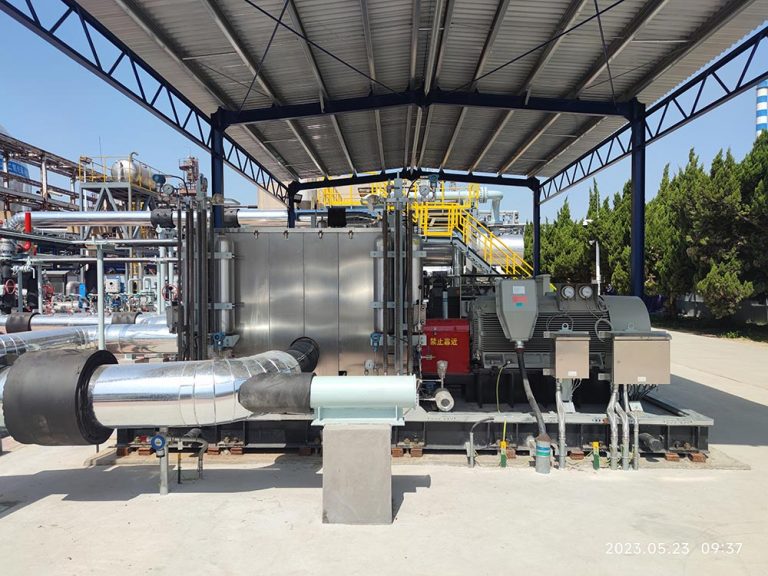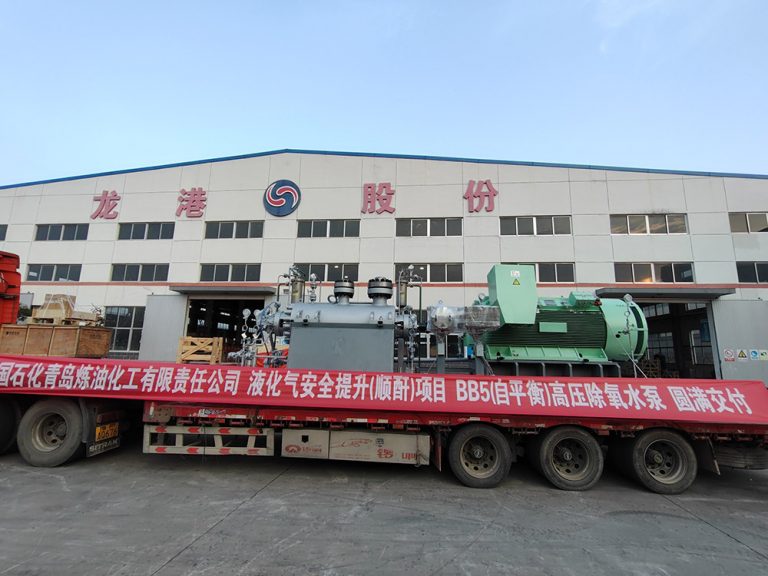When dealing with the world of oil and gas activities, it’s essential to pick the best pump provider to guarantee effectiveness and dependability. This blog delves into the typical pump varieties utilized in oil and gas activities, the elements impacting pump choices and key considerations when assessing suppliers. By the conclusion of this process, you will gain a grasp on how to make well-considered choices when selecting pump options for oil and gas purposes.
Knowing CNPC’s Pump Needs in Oil & Gas
In the oil and gas sector, pumps play a role by aiding in the transportation of liquids across different operational phases such as extraction and distribution processes.
Types of Pumps Used in CNPC Operations
In the oil and gas industry sector, many companies heavily depend upon a variety of pumps to maintain effective operations. These pumps play a role in numerous applications ranging from extraction to transportation and refining processes.
Centrifugal Pumps
Centrifugal pumps are widely utilized in the operations of CNPC for their effectiveness in managing amounts of fluid with low viscosity levels. They work by transforming kinetic energy into the hydrodynamic energy needed for fluid flow through a motor’s power source. Many industries in the petroleum and petrochemical sector rely heavily upon these products for their effectiveness and dependability.

Reciprocating Pumps
Reciprocating pumps play a role in CNPC’s toolkit when dealing with high pressure needs. They operate by using a piston or plunger system to maintain a flow of fluids – perfect for jobs needing precise control over flow rates. Their construction enables them to manage liquids and those with particles in suspension, an important feature in specific oil extraction methods.
Rotary Pumps
Rotary pumps are commonly used due to their ability to manage liquids effectively while ensuring a consistent and seamless flow of liquid is maintained at all times. They operate by capturing a quantity of liquid and pushing it through the pump’s outlet pipe in a controlled manner. This particular pump plays a role in operations that require maintaining a stable flow even when pressure or liquid thickness fluctuates.
Factors Influencing Pump Selection
When choosing the pump for CNPC’s oil and gas activities, it’s crucial to take into account a variety of important elements.
Operational Requirements
The operational needs determine which pump type is selected based on factors, like the nature of the fluid being pumped out and the necessary flow rate and pressure conditions in place for operation purposes. Each type of pump has its own set of benefits to offer, so getting a grasp of these requirements is crucial for achieving top-notch performance.
Environmental Conditions
Environmental factors are also crucial when choosing a pump model since things like temperatures or corrosive surroundings in remote areas can impact the materials and designs used in making pumps.
Cost Considerations
Cost factors involve more than the upfront cost. They also take into account ongoing expenses, like upkeep and energy use over time. People efficient value pumps, have overall costs and maintain top-notch performance.
Evaluating CNPC Pump Suppliers
Securing the vendor is vital to guarantee the effectiveness and dependability of the pumps utilized in CNPC’s activities.
Reliability and Reputation
The supplier must demonstrate a history of delivering top-notch pumps consistently and by industry norms like API standards.
Technological Innovation
Find a provider that is always evolving and embracing technologies to enhance the efficiency and effectiveness of pumps while also being able to tailor pumps to fulfill individual operational needs.
After-Sales Support
An effective supplier will provide notch post-purchase assistance, such as upkeep services and repairs as well as technical guidance. They should also conduct training sessions for operators.
Assessing Supplier Capabilities
Assessing a supplier’s abilities includes reviewing their production criteria and quality control procedures.
Manufacturing Standards
An experienced vendor will possess research and development as well as manufacturing capacities and should equally be equipped to tailor products based on your specific needs and preferences. It is crucial to verify that the goods meet the standards for performance quality and post-purchase support.
Quality Assurance Processes
Suppliers need to maintain testing and quality standards in place for their products to meet requirements effectively, just like in the case of API pumps that go through various tests, such as performance evaluations and mechanical running tests to ensure they comply with the standards set in place.

Yantai Longgang: Your Trusted Pumps Supplier
Yantai Longgang Pump Industry Co., Ltd. is a qualified supplier of CNPC, Sinopec and CNOOC, providing mature pump solutions for petrochemical equipment. They focus on technological upgrades and independent research and development, working with universities to develop new products, producing a range of chemical centrifugal pumps, including BB series, OH series and VS series pumps, which are widely used in various industries such as petroleum and petrochemical, coal chemical and water treatment. Moreover, they also have experience with developing special alloy material pumps for highly corrosive substances. Nowadays, their products are well-received both domestically and abroad.
Benefits of Choosing the Right CNPC Pump Supplier
Teaming up with the pump supplier can bring about a wealth of advantages. Choosing a supplier can lead to better operational effectiveness, lowered downtime, increased production speeds and savings over the long term.
Enhancing Operational Efficiency
Choosing the provider of CNPC pumps can greatly improve operational effectiveness in oil and gas extraction and processing environments by reducing energy usage and maintaining seamless operations.
Reducing Downtime
Opt for a trusted pump supplier to cut down on delays and boost efficiency at CNPC facilities by using durable pumps that need fewer repairs and upkeep tasks to keep production running smoothly without interruptions.
Improving Production Rates
Effective pumps play a role in enhancing production rates by ensuring a steady flow of fluids and maintaining optimal pressure levels consistently over time. These innovations improve pump efficiency and reliability in meeting production goals while maximizing resource efficiency.
Long-term Cost Savings
Opting for the pump provider can lead to substantial cost savings in the long run for CNPC’s activities.
Maintenance and Repair Costs
Good pumps from known suppliers usually last longer and require less upkeep compared to lower-quality ones. This results in repairs needed and helps save money overall.
Energy Efficiency Benefits
Switching to using energy pumps can cut down on operating expenses by reducing energy usage without sacrificing effectiveness. This is particularly crucial in extensive oil and gas projects where energy consumption is significant.
FAQs
Here are some frequently asked questions to further clarify the important points about pump selection and supplier evaluation.
1. How long does a pump usually last when it’s used in oil and gas activities?
Centrifugal pumps typically last 10–15 years with proper maintenance, while reciprocating pumps may have a longer lifespan due to their robust design.
2. How do the pumps from CNPC manage the intense temperatures found in oil fields?
CNPC uses pumps with specialized materials and coatings, such as high-alloy steels and ceramic linings to withstand extreme heat or cold, ensuring reliable performance in harsh environments.
3. How does CNPC make sure that its pumping systems are energy efficient?
CNPC integrates variable frequency drives (VFDs), optimized impeller designs and predictive maintenance systems to reduce energy consumption and enhance overall efficiency.








